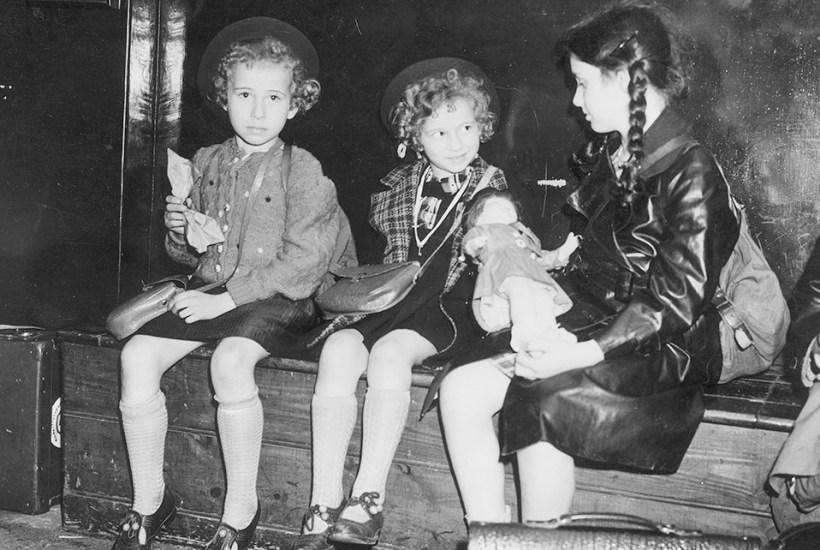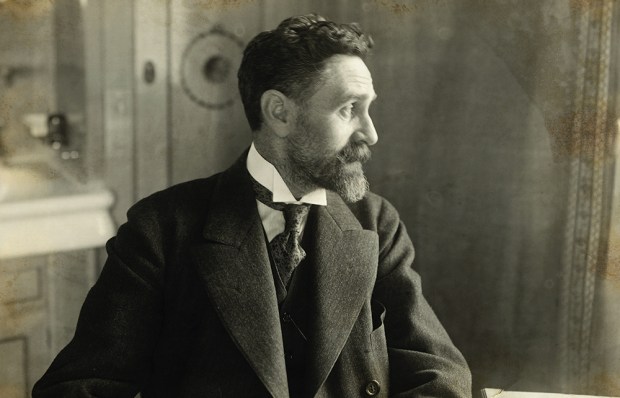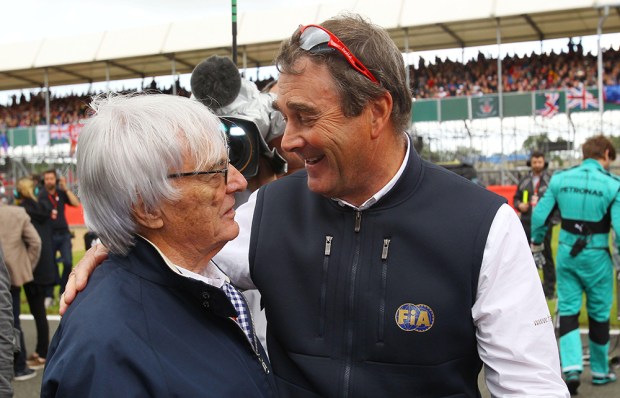On the night of 9 November 1938, across Germany and Austria, Jews were attacked and their synagogues and businesses set on fire. In the days that followed Kristallnacht, a scheme was put in place to save children from Nazi persecution. Known as the Kindertransport, it would, over the following ten months, bring 10,000 children to the UK. The Kindertransport – the word refers both to the means of transport and to the overarching programme – has always been regarded as a symbol of British generosity towards those in peril and seeking asylum. But it was all rather more complicated, as Andrea Hammel sets out to show.
There have been innumerable studies and reports describing the Kindertransport children, and Hammel draws on these and on the detailed research she has carried out herself over the past 20 years to paint a more critical picture. The story starts in Evian, in July 1938, when representatives from 32 countries gathered to discuss what each would do to help with the worsening refugee crisis in Nazi Germany. In the event, after many pious speeches, only the Dominican Republic agreed to open its doors to those fleeing persecution. As T.W. White from Australia put it: ‘Since we have no real racial problem, we are not desirous of importing one.’ Hitler pronounced himself ‘astounded’ that countries felt free to criticise Germany’s treatment of Jews but were curiously unwilling to offer their help.
The UK had already begun regulating immigration in 1905, and from April 1938, anyone wishing to gain entry to the country needed a visa. Celebrated academics, scientists and artists had a better chance than most, as did women willing to work as maids at a time when Britain was said to be suffering from a ‘servant crisis’.
Kristallnacht jolted perceptions of what was actually happening in Germany, but it did not alter the UK’s restrictive policies – except for a small, exclusive band: unaccompanied children under 18, either on their own or with a sibling (any older and they might have competed for jobs at a time of high unemployment). They had to be healthy, without physical or behavioural problems. Bedwetters were not eligible. The plan was put together not by the British government, which offered only to waive visa requirements while demanding £50 per child against future expenses, but by a range of Jewish and humanitarian organisations. There was no question of parents accompanying their children.
It all happened with impressive speed. By early December, the first children were on trains bound for the UK, while all across Germany and Austria frantic parents tried to secure places for their offspring. Those who arrived left behind not only their families and friends but their language and culture. There had been little time to match children to new families, and though some were immediately delivered to designated homes, others were held in camps, as potential foster parents arrived to take their pick. Small, pretty girls went first; adolescent boys last. Eighty per cent of the children were Jewish, but very few of the foster parents were, and there were heated debates within the Jewish community about the need for more Orthodox homes.
A Zionist training camp was set up in North Wales, where children worked on the land. Gwrych Castle was magnificent, with oak panelling and a marble staircase, but it had no electricity and scant sanitation. The 200 children billeted there were often cold and hungry. In a derelict farm near Belfast, 100 Czech children helped set up a business with 2,000 chickens and two large Clydesdale horses.
It would of course have been astonishing if all had gone smoothly. The children were lonely, frightened, confused and missing their families. They had seen their parents beaten up and imprisoned, their homes destroyed. Few spoke any English. They were put into schools and struggled. It had been assumed that they would, before too long, be able to go home, but once war was declared, all contact with their parents ceased. Many would learn of their fate only six or even seven years later; indeed, some never discovered. When evacuated with their schools they were moved yet again, and urged to change their German-sounding names and refrain from speaking German. Those who turned 16 faced internment as enemy aliens, and several Kindertransport children went down on the Arandora Star, torpedoed by a German submarine as it carried internees to Canada.
Nor did the end of the war bring much happiness. Even those reunited with their parents found readjustment hard, and some were reluctant to go home. Small children had become teenagers, and teenagers young men and women. Few still spoke German. Surviving parents, themselves traumatised by all they had experienced, found their much missed children had turned into strangers. Initial gratitude was sometimes replaced by bitterness, and, as they grew older, the Kindertransport children began to write their memoirs, often describing unhappiness with their foster parents, unsatisfactory education and lives that never came right. A study carried out by a German researcher, Rebekha Göpfert, found that those who had managed to get themselves to the US after the war had felt considerably more welcome.
Though it was volunteers, with money raised from the public, that made the scheme possible, the fact that the British government waived the visa requirement was of course crucial. Without that there would have been no Kindertransport. A Bill introduced to Congress to bring 20,000 refugee children to the US failed to pass. Children were taken in by the Netherlands, Belgium, France, Sweden and Switzerland, but in smaller numbers.
Celebrating the Kindertransport has been a way of clinging on to a reputation for generosity, invoking Britain’s basically humanitarian spirit. It is a trope that has persisted down the years. But the picture has to be qualified. Compared with other northern European countries, and particularly Germany, the UK’s recent response to refugees from Afghanistan, Syria and Ukraine has been woeful. The Community Sponsorship Scheme, whereby refugee families have been brought into the UK only when places have been offered and money guaranteed, has been a voluntary and not a government affair – as with the Kindertransport. We were not then, as Hammel’s carefully researched book makes clear, and are not now, led by generous people.
Got something to add? Join the discussion and comment below.
Get 10 issues for just $10
Subscribe to The Spectator Australia today for the next 10 magazine issues, plus full online access, for just $10.
You might disagree with half of it, but you’ll enjoy reading all of it. Try your first month for free, then just $2 a week for the remainder of your first year.














Comments
Don't miss out
Join the conversation with other Spectator Australia readers. Subscribe to leave a comment.
SUBSCRIBEAlready a subscriber? Log in